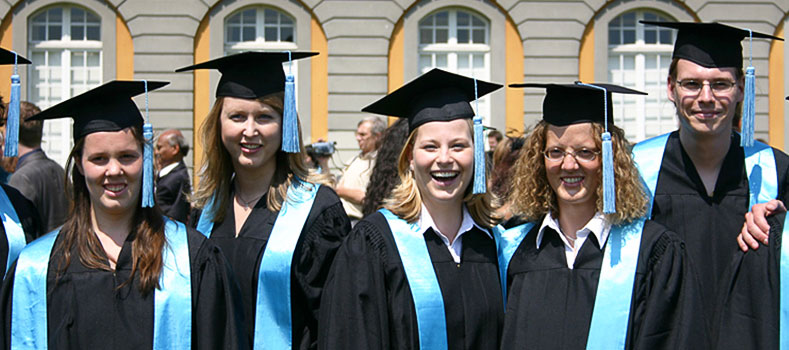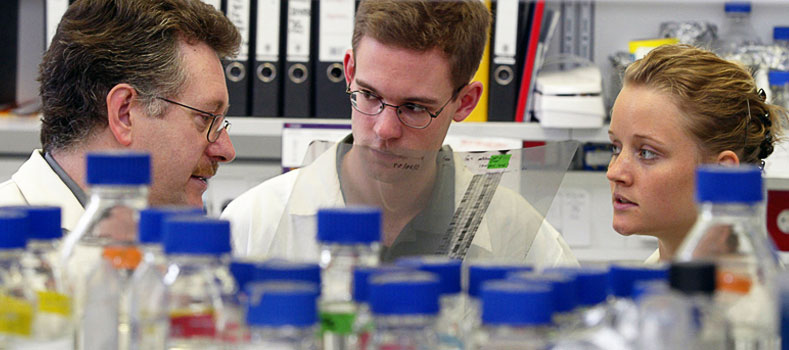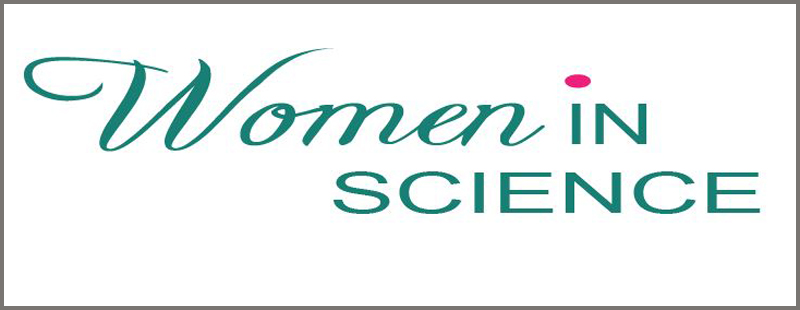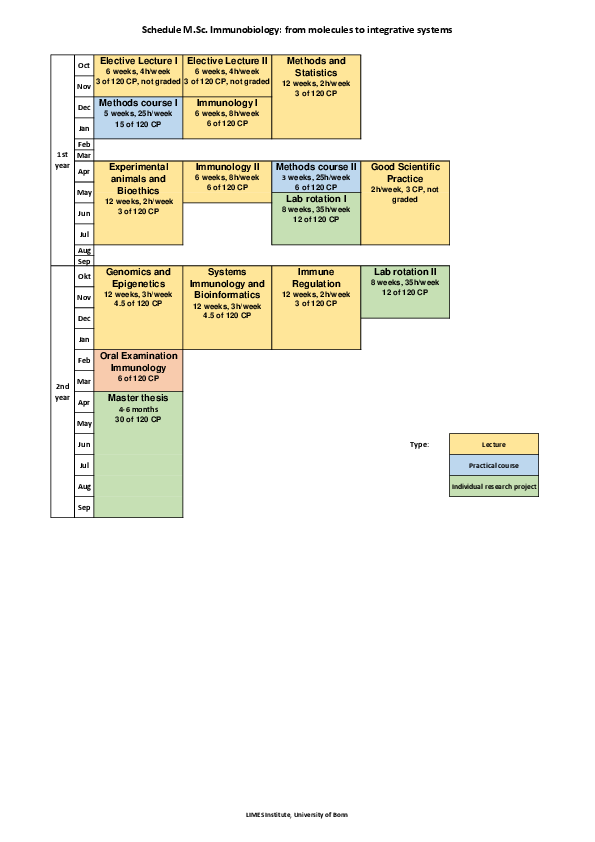Students will be offered a profound education in both immunology and systems biology. The aim of the program is to mediate an in-depth understanding of the molecular and structural processes of the immune system combined with substantial knowledge and hands-on training in genomics, epigenetics and bio-informatics.
In particular, the Master´s program includes:
Lectures
Lectures are given by the faculty of the program throughout the first three semesters of the Master's program and are intended to give a detailed overview of a particular topic. Lectures may also include tutorials and seminars, in which relevant topics are highlighted and discussed.
Topics of the lectures are:
- Immunology I (Innate Immunology)
- Immunology II (Adaptive Immunology)
- Methods in Life Sciences and Statistics
- Genomics and Epigenetics
- Systems biology, Bio-informatics and Big data science
- The immune system in barrier organs and immune regulation
- Experimental Animals and Bioethics
Additionally, the master´s program starts with two elective lectures. These lectures provide a detailed overview of a particular field and are intended to give the students the opportunity to overcome a lack of basic knowledge in that field. Elective lectures are not graded. Students should attend at least two of the following lectures:
- Biochemistry and organic chemistry
- Cell biology and immunology
- Genetics and molecular biology
- Inorganic chemistry and physical chemistry
Method Course I and II
All students participate in two introductory methods courses. In these practical courses, students are able to learn and become familiarized with fundamental techniques applied in current research. The methods courses comprise 8 weeks of experimental work in total.
Lab Rotations
Every student conducts two individual research projects (lab rotations), which each involve seven weeks of experimental work, followed by one week of data analysis and a written lab report in the format of a scientific research publication. Lab rotations can be performed in the LIMES Institute, in partner institutions (German Center for Neurodegenerative Diseases, Center of Advanced European Studies and Research or Bayer Pharma) or in any another University in Germany or abroad.
Workshops with representatives of Life Science Companies
In this module, students will become familiar with activities and the workflow of companies from different fields of life sciences and will gain first experiences in industry. Students will be able to participate in one-day workshops with representatives from different scientific companies. Alternatively, students can visit such companies or related institutions in one-day excursions. Each student should take part in two workshops, two excursions or one workshop and one excursion.
Oral Examination Immunology
his oral examination will cover all topics from the lectures in immunology, systems biology, genomics and epigenetics. Such an examination gives the students the opportunity to demonstrate a broad understanding of the different subjects and the ability to recognize interdisciplinary correlations between different topics.
Master's Thesis
The Master program is completed by a six-month Master's thesis which is carried out in the research groups of the LIMES institute, in partner institutions (German Center for Neurodegenerative Diseases, Center of Advanced European Studies and Research or Bayer Pharma) or at another university in Germany or abroad. The thesis project involves experimental work under the supervision of a faculty member of the Master program.









